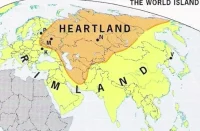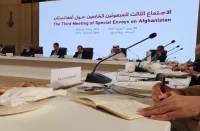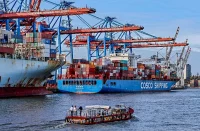Nikita MENDKOVICH (Russia)
The recent leak of thousands of secret documents from US intelligence in Afghanistan has aroused intense interest throughout world, both in the fact of the leak itself and in the content of the published information. After studying the matter, I would like pass on my understanding of the situation.
First of all, this is not the first time classified information related to Afghanistan has been leaked from American intelligence agencies. Documents containing information about the political situation in Afghanistan and about Hamid Karzai and his associates have been published in recent years. The leaks were more scandalous and constant than dangerous. There have even been reports that CDs containing similar materials could be purchased at bazaars in Kabul.
Following this latest leak of thousands of documents, it was reported that Bradley Manning, a US military analyst, has been arrested and accused of disclosing state secrets. It is difficult to say whether he is the person who leaked the “Afghan” documents. According to reports, Manning was arrested in the spring, so if he is guilty the continued publication of classified documents is only possible if he gave them to accomplices before his arrest.
I am inclined to look for the source of the Afghan leaks in Afghanistan, among lower-ranking American personnel or even Afghan intelligence.
As far as the content of the documents published on the WikiLeaks site is concerned, it is important to stress that they contain nothing that they could be called sensational. Most of the materials—those we might call routine—are reports of patrols, mine detection and random skirmishes. The published documents even include translations of articles about events in Afghanistan that appeared in foreign media and were intended for internal use.
However, a portion of the stolen documents has not yet been published in order to avoid jeopardizing combat operations, and they are in the hands of several Western media outlets. It may be that they contain the most interesting material.
Let me stress, however, that the body of the published documents only confirms known facts. The tactical information about the problems facing NATO troops in Afghanistan is entirely consistent with what has been published in open sources. No one who has been following events in Afghanistan will be surprised by the information from the documents about civilian casualties that the press has been playing up. Reports about casualties from air attacks unfortunately have been appearing with depressing regularity, and a number of incidents have already been the subject of debate in several coalition countries.
The suspicions about Iran and Pakistan cooperating with the Taliban in the leaked materials have been repeatedly voiced by American officials in recent months, and it is likely that no Afghan experts doubt that such contacts occur.
The report that one of the unedited documents posted by the Washington Post contained information about contacts between the armed Afghan opposition and North Korea was somewhat surprising. It was reported that “On 19 November 2005, Hezb-Islami party leader, Gulbuddin Hekmartyr and Dr. Amin ((NLN)), Usama Bin Ladin’s financial advisor, both flew to North Korea departing from an Iran. They returned to Helmand, Afghanistan on approximately 03 December 2005.” According to published information, the purpose of the trip was to confirm a deal for delivery of remote-controlled missiles to the armed opposition in Afghanistan.
This information is somewhat suspicious—at least in view of the doubtful nature of a joint trip by Hekmatyar to the other side of the continent even though his main supplier since the 1979-1989 war has been Pakistan’s intelligence service.
Also, the document was dated 2007, and in October 2008 North Korea was removed from the list of sponsors of terrorism; it had been placed on the list after the bombing of the South Korean aircraft in 1987 that was blamed on North Korea’s intelligence service. If Washington had believed the report about Hekmatyar’s trip, they would have used it in 2008, or it would have been released during the conflict this year over the sinking of the Cheonan. It is more likely that the alleged second traveler, Dr. Amin (Amin al-Haq of Nangarhar), was captured in the United States in January, 2008 and could testify about the incident.
The reaction of the regional players to the fact of the leak itself is much more interesting. Both official Kabul and the armed opposition were happy about it, rather than upset. Afghanistan hastened to express satisfaction that information about the involvement of its southern neighbors in funding the Taliban has been independently confirmed. The head of the public affairs office of Afghanistan’s Ministry of Defense, Zahir Azimi, said the leak would help the international community accept what Afghanistan had been saying for a long time.
The Afghan Taliban told the media that they intend to study the published materials in order to identify people who have been cooperating with the enemy and punish them. For the sake of fairness, however, it must be admitted that there is very little information in the published materials about informants and people helping coalition forces, and the few people named are government officials.
The Pakistani Taliban also decided to strike while the iron is hot. Last week a statement appeared from Colonel Imam ( also known as Sultan Amir), a retired Pakistani ISI intelligence officer who is being held, to the effect that unless the country’s authorities free him his next statement would reveal secrets about ISI operations against India, Afghanistan, the United States and Russia. Considering the nature of that agency’s operation and its close contacts with a number of Islamic radicals, he may actually reveal much that is interesting.
The Iranian and Pakistani authorities quickly disavowed the charges levied against them. For Pakistan, the matter has more to do with cooperation of the military intelligence lobby with the Taliban, and not the government as a whole.
This report about unfolding events can hardly be called definitive. Members of the Western media and independent experts are continuing their analysis of the documents, and interesting but as yet unnoticed information may be found in them. The Afghan opposition also continues to mine the leak, so we can anticipate more statements, “sensational revelations” and denials.
Nikita Mendkovich is a Historian, Economist and Expert at the Russian Center for the Study of Modern Afghanistan.
Source: New Eastern Outlook














Comments